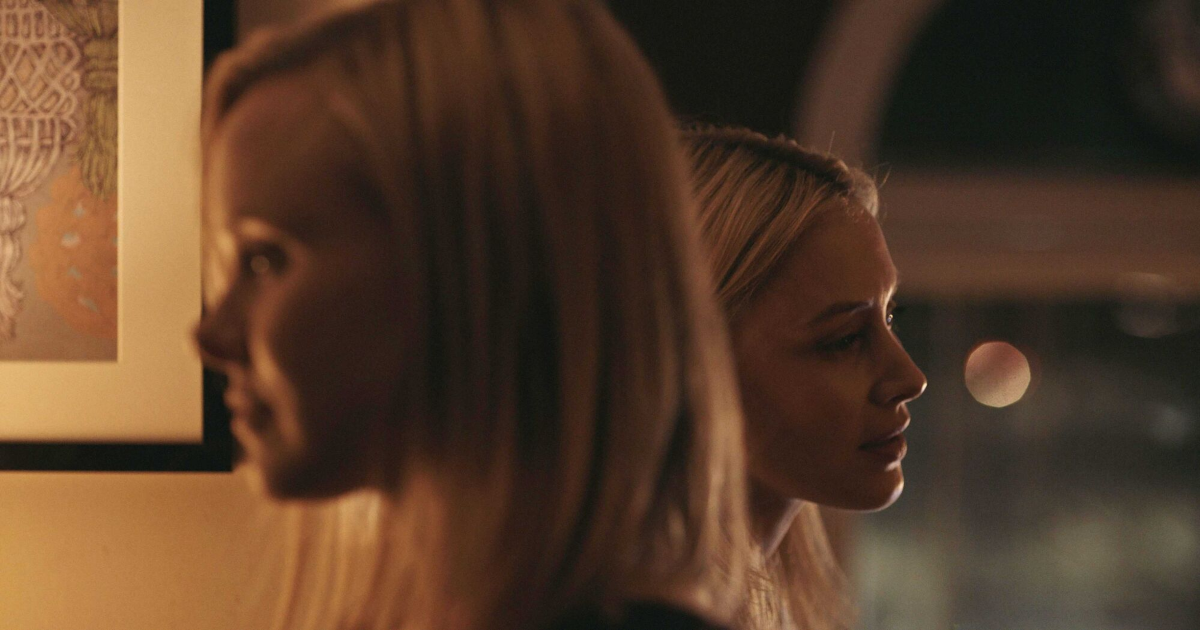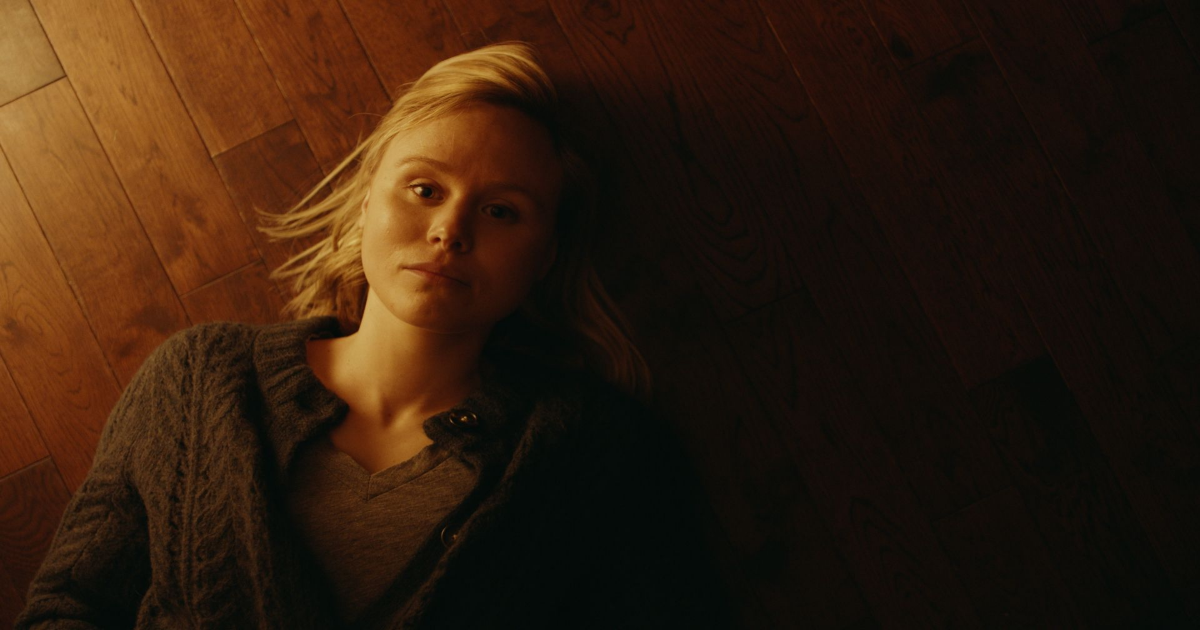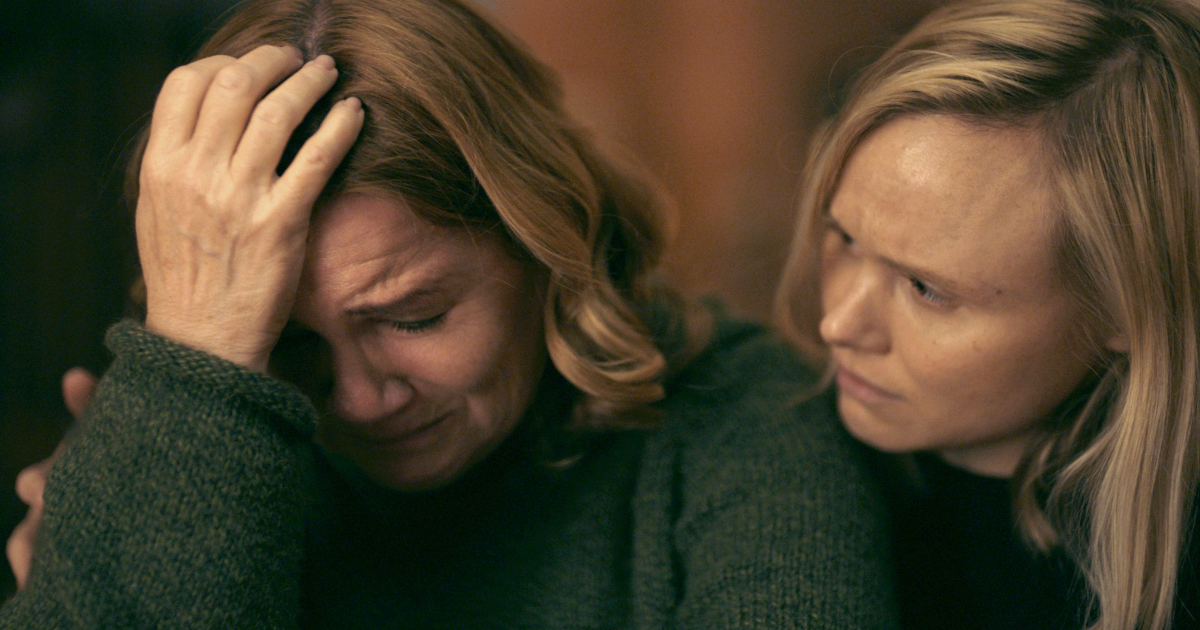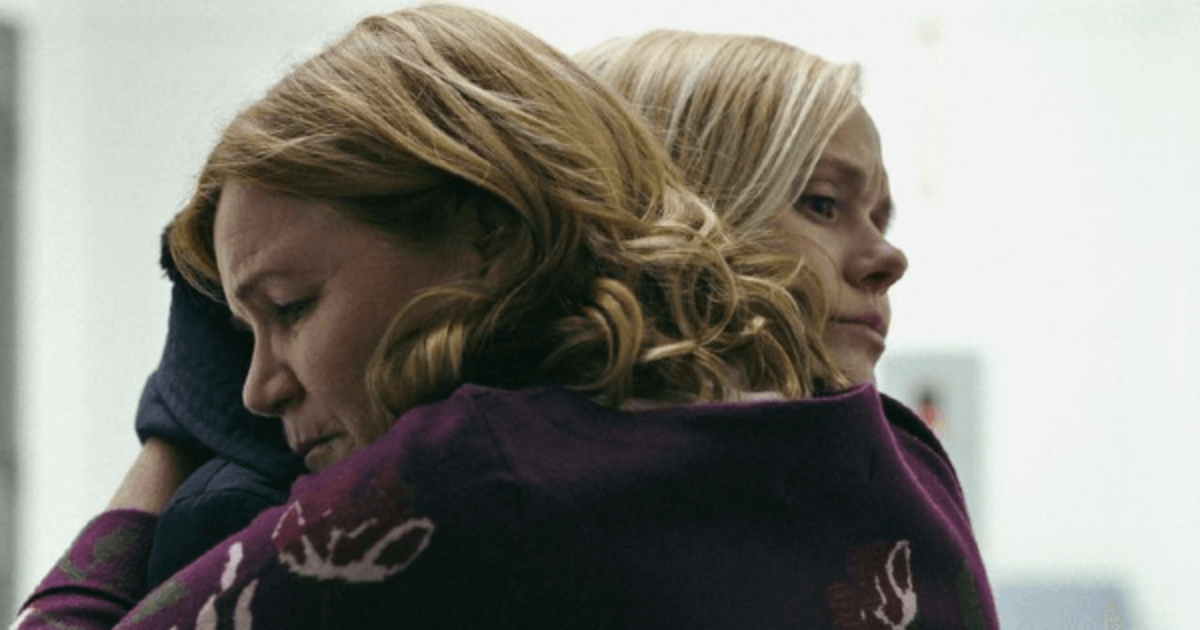The bullet-like trajectories of Alison Pill and Sarah Gadon have intersected frequently throughout their nearly three decades in the entertainment industry, artistic ricochets reverberating each time they meet. The two Toronto natives enrolled in the Claude Watson School for the Arts in North York, and then at the Vaughan Road Academy, and have been in multiple films together in their youth.
They went their separate ways in the early 2000s, each embarking on an impressive career — Pill has appeared in Goon, The Newsroom, Scott Pilgrim vs. The World, In Treatment, American Horror Story, Vice, Devs, and Star Trek: Picard; Gadon has appeared in 11.22.63, Letterkenny, Alias Grace, Enemy, American Woman, and the David Cronenberg movies A Dangerous Method, Cosmopolis, and Maps to the Stars, each of them winning awards and praise along the way. Now, roughly 20 years since they last acted together, they’re portraying sisters in Michael McGowan’s painful, powerful new film, All My Puny Sorrows, and their chemistry is remarkably evident.
Alison Pill and Sarah Gadon, Friends Starring as Sisters
“It’s interesting because we went to the same grade school, so we’ve known each other since we were really little kids,” Pill says, “then we’ve worked together after that, and have sort of been in the same Toronto circles, but we hadn’t seen each other in so long. I think what was really interesting is that it was incredibly easy to jump back in, and it also had that wonderful strangeness, with somebody who part of you still thinks of as 10 years old, which I think is what happens a lot with real siblings.”
As such, their real lives have a certain similarity to the stops and starts of sisterhood, and they’re able to summon up something real. “I think it’s incredibly difficult to manufacture that exact type of chemistry,” Pill continues, “where you can see this person for who they are presently but also who they used to be and sort of every so often, you’re kind of like, ‘Whoa, look at you grown up.’ So I think there was something really special about it.”
The longevity the two actors have accrued together was undoubtedly helpful toward representing an authentically sisterly relationship in the film. In All My Puny Sorrows, Pill plays Yoli, a writer going through a divorce who learns about the suicide attempt of her sister Elf (played by Gadon). Yoli leaves her daughter (played by Amybeth McNulty) temporarily to go home and see her mother (played by the great Mare Winningham) and Elf, and it’s the intimate interactions between them that creates a lived-in, relatable, and authentic experience for the viewer. Some of the many highlights of the film are the hospital interactions between Gadon and Pill, who were operating on the same utterly magnetic wavelength.
“We were both in these gifted programs as kids at arts-intensive schools, and we were at the schools from the time we’re eight years old and went to the same high school,” Gadon says. “We grew up as child actors in Toronto, and those kinds of experiences really informed and shaped who you are, and who you are as an artist. So, I felt like Allison and I are cut from the same cloth, you know, the way we approach our work is similar, what she is going to bring to the table, and how her work ethic is the same as mine.” “To have the working relationship that we did,” Pill agrees, “I think bred the same kind of closeness, like, I feel like this person really gets me.”
Honoring Miriam Toews, Author of the Novel
They also really get their characters. Another aspect of the film’s authenticity stems from the original novel by Miriam Toews, in which she writes semi-autobiographically about the Von Riesen family’s history of suicide and depression. Pill and Gadon were in contact with Toews throughout the production of the film, resulting in even more of an honest representation; the actors harnessed her knowledge, tapping into Toews’ novel and producing something raw and true as a result.
“I was a really big fan of Miriam and the novel before I came on to do the project,” Gadon says, “and I found the novel deeply compelling, the way that Miriam writes about depression and suicide. She’s writing from such an authentic place, and kind of providing a perspective on subject matter that we think of as very black and white, usually. So I was really drawn in by her perspective.”
“It was incredibly helpful to have discussions with [Miriam Toews] about the physicality between her and her sister, and to just have her support and her mom’s support,” Pill says, “to have that access was just irreplaceable.” “[Miriam] was so open and generous and detailed in her accounts of her family and what her sister was like, so it was such a gift to be able to talk to her,” Gadon agrees. The actors did so well in their roles that the Toews family gave them the ultimate compliment. “When we premiered at TIFF, her daughter and her mom both got to be in the audience,” Pill gushes, and they told her, “she sounds like you, and she moves like you […] I felt so privileged to be able to hear that and to share that.”
The Responsibility of Depicting Depression Authentically
Privilege or not, there is a kind of intimidating responsibility to not only represent a real family but also to accurately depict depression and the emotionally devastating effects of suicide and suicidal ideation without judgment, condescension, or a position of power. “I all of a sudden became really terrified,” Gadon admits. “I have had my own struggles with depression, but I haven’t dealt with intergenerational suicide, and I haven’t had to deal with a lot of those things that she deals with in the novel, and to add to that, I know that Elf is based on her real-life sister, and the novel is based on her family’s real-life experience. So I became really afraid of that responsibility.”
Elf is an incredible character, and Gadon rises to meet the challenge. A successful pianist who has decided that death is preferable to life, Elf is an intelligent, funny, talented, beautiful, and charismatic person, one who challenges some unfortunately common notions about depression. “I kept pushing for this portrayal of a complete person, and not a stereotype of somebody who’s depressed or somebody who wants to kill themselves because her sister in real life was extremely intelligent and creative. She was good at hiding her depression at times. She was a good actor, and she also was very passionate and was an advocate for her desire to end her life. And that is very complicated.”
How people cope with mental health, and the politics and ethics of assisted suicide, are controversial topics, but All My Puny Sorrows is remarkably not a very controversial movie. It’s a tender, compassionate, but tough and astute examination of the issues without succumbing to any moralizing, and gives a truly human face to what is often a hyperbolic or abstract debate.
All My Puny Sorrows Challenges Ideology
“What great art does is it challenges the way we think about things,” Gadon says, “it challenges dominant ideology, and it opens up space for critical thinking to happen. I think that that’s what Miriam does in the novel, and what ultimately I hope that film does, especially for people who kind of view suicide and depression as if it’s a black and white, right or wrong thing, and gives them the space and empathy to explore the issue and its gray area.” Pill passionately continues:
I believe there should be more conversation about assisted suicide. I also believe that we should have more conversations about mental health struggles more generally, and to look at the systems in place that are currently not working for people struggling with their mental health […] I think the entire country has been struggling with mental health for a while, especially the last two years, and [it’s important] to look at these questions non-judgmentally, and to ask, how can we best serve these patients? How can we best serve our families and friends who are struggling? When we lack so many answers, how can we listen to their experiences in a way that is helpful?
These ethical questions are given human faces with the characters in All My Puny Sorrows, and as a result, the film doesn’t just open minds to difficult ideas but also opens hearts. “I think that you’re supposed to kind of come away from the film with that level of empathy,” Gadon concludes, “but life is messy and complicated and often, subjects around mortality and autonomy over your own body are some of the most heated discussions that we have in our society. What I hope the film does is that it opens up space for you to question how you feel and how you think about those things.”
Read Next
About The Author
Stay connected with us on social media platform for instant update click here to join our Twitter, & Facebook
We are now on Telegram. Click here to join our channel (@TechiUpdate) and stay updated with the latest Technology headlines.
For all the latest Education News Click Here





.jpg?fit=crop&w=100&h=100)